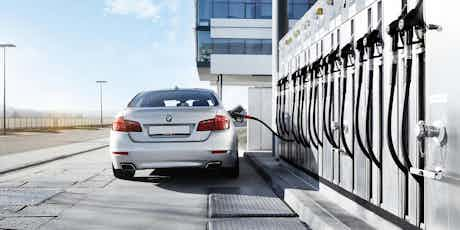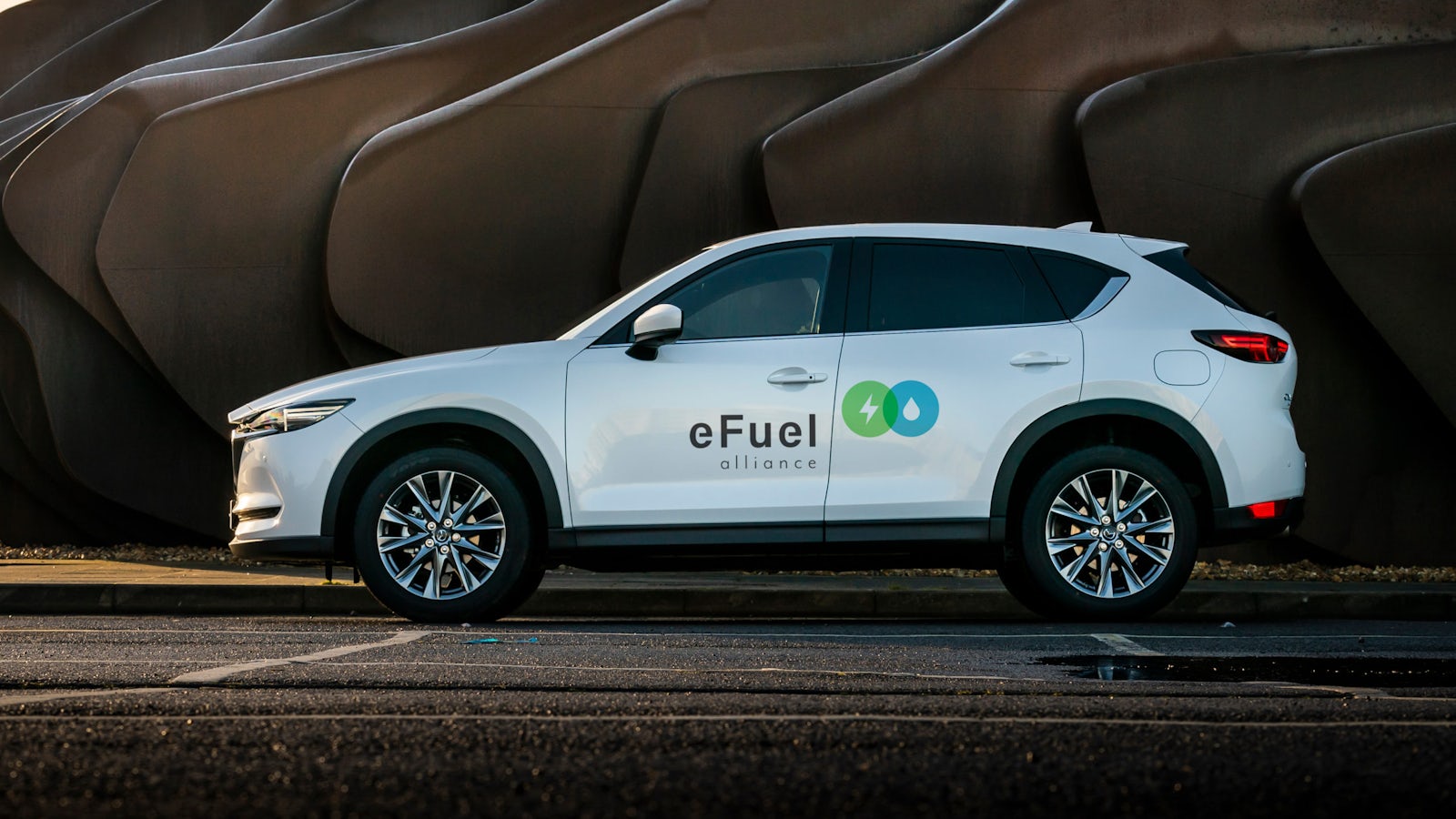What are synthetic e-fuels?
March 29, 2023 by Hugo Griffiths

Sales of new petrol and diesel cars are set to be banned before long – could synthetic fuel give them a reprieve?
The UK is set to ban sales of new petrol and diesel cars in 2035, with the European Union taking a similar path. But while the electric cars that are set to replace them are generally considered to be better for the environment, there remain concerns about the affordability of EVs, as well as charging infrastructure and resources for battery materials.
Given these considerations, changes to EU policy have now opened the door to allow new cars running on synthetic e-fuel to be sold from new past 2035, with the UK government likely to follow suit.
But what is synthetic e-fuel, and is it really an alternative to fossil fuels?
What is synthetic fuel?
Conventional petrol and diesel are derived from oil, itself a product of biological organisms such as plankton and algae that absorbed energy from the sun millions of years ago. When petrol and diesel are burnt they provide the desired energy, but they also produce harmful emissions, releasing the carbon once stored by these organisms as carbon dioxide (CO2), an undesirable gas with regard to climate change.
The ‘synthetic’ in synthetic fuel simply means that the fuel was created by humans to mimic naturally occurring fuels such as oil and gas, with ‘synthetic fuel’ being a broad term covering a variety of man-made products used to store and provide energy.
E-fuel, short for electrofuel, is a type of synthetic fuel that is carbon neutral and has been created using renewable energy. We could use non-renewable energy sources (EG coal) to produce synthetic fuel – indeed, huge amounts of synthetic aviation fuel were created during the Second World War using non-renewable sources – but carbon capture and renewable energy must be used for a synthetic fuel to be classed as a carbon neutral e-fuel.
UK drivers are already using synthetic fuels on a smaller scale, as our standard unleaded consists of up to 10% renewable bioethanol, which is synthesised by fermenting plants. This does require large amounts of land in order to grow the crops necessary for bioethanol, though.

Petrol and diesel can be synthesised completely as man-made fuels, and the resultant fuel can be transported and stored in the same way as conventional fuels, before being burnt in an engine in the conventional manner.
When used on the road to power a car, synthetic petrol and diesel create comparable CO2 emissions to conventional fuels (although synthetic fuel can produce fewer particulates), but the production of e-fuel takes large amounts of carbon dioxide from the atmosphere, offsetting emissions produced by vehicles on the road.
How are synthetic fuels made?
Synthetic fuels can be created via several different processes, and some of these – such as coal liquefaction – generate large amounts of carbon dioxide, so would not be a viable clean alternative to conventional fuels.
But it is also possible to create synthetic fuels via a method that captures carbon dioxide from the atmosphere, and it’s this technique that is receiving interest (and investment) from car makers and other industries, as well as approval from legislators.
The process works like this:
- Carbon dioxide is captured either directly from the atmosphere, or from emissions produced by industrial plants and factories.
- Renewable energy sources are used to generate hydrogen.
- Hydrogen and carbon dioxide are combined into synthetic methanol, which could either be burnt as is in cars with engines that can run on methanol, or processed into synthetic petrol and diesel.
Which car makers have invested in synthetic fuel?
The highest-profile investor in synthetic fuel is arguably Porsche (itself owned by the Volkswagen Group). The German sports car manufacturer has invested around $100 million (£82m) in a project that will create synthetic fuels at a new facility in Chile, which is expected to produce up to 130,000 litres of synthetic fuel by 2022, and 550 million litres by 2026. This is rather small fry given the USA used roughly 612 billion litres of petrol in 2021 alone, though.

BMW, meanwhile, invested $12.5 million (£10.3m) in an e-fuel startup called Prometheus Fuels in 2020, though again, this is a drop in the ocean when the firm announced a $24 billion (£18bn) purchase of electric-car batteries in 2021.
Audi said in 2018 that it was “convinced of the potential” of synthetic fuels, though subsequently clarified that electric cars represent its true future path, with e-fuels merely a bridging technology. Toyota, meanwhile, announced a GR86 running on synthetic fuel would compete in the Japanese Super Taikyu race series, while McLaren has indicated it sees potential in e-fuels.
Are there any other fuel alternatives?
Hydrogen fuel-cell cars present one potential future, but all signs point to these being expensive and hugely difficult from an infrastructure perspective, so the jury is either out, or leaning towards an acquittal of this technology as being a valid one for road cars (though its application in rail or maritime freight looks potentially more hopeful).
The same goes for hydrogen combustion cars which, rather than splitting electrons from hydrogen molecules and harvesting electricity this way, ignite hydrogen in an engine.
Biofuels, which are comprised of alcohol fermented from crops like maize, are also an alternative fuel, but these require huge tracts of land to be given over to crops, while also emitting CO2 when they burn.
Solar is generations away from providing enough motive power for a car, while other fringe automotive propulsion technologies include compressed air and compressed nitrogen.
Car Change? Carwow!
Looking for a new set of wheels? With Carwow you can sell your car quickly and for a fair price – as well as find great offers on your next one. Whether you’re looking to buy a car brand new, are after something used or you want to explore car leasing options, Carwow is your one stop shop for new car deals.















